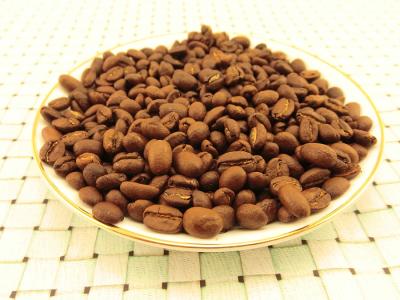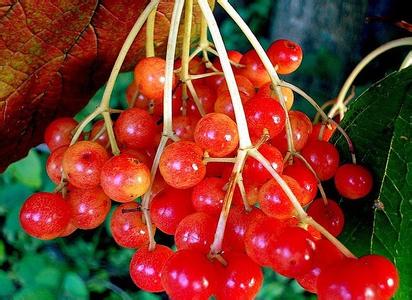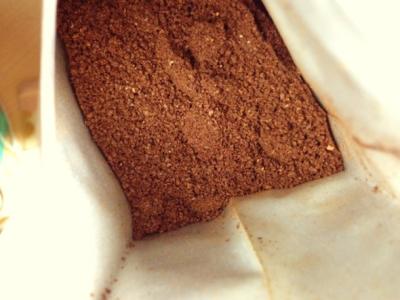Using the traditional Brazilian natural drying method of pulp, Brazilian Cerrado Syrador coffee beans
Using the traditional Brazilian natural drying method of pulp, Brazilian Cerrado Syrador coffee beans
Brazil's coffee production ranks first in the world, and the United States ranks first in coffee consumption in the world, with an annual consumption of about 3 trillion yuan. However, China's coffee consumption market is only about 70 billion yuan, and there is still a lot of room for development.
So far, overseas coffee roasters have been able to absorb higher costs, while Brazil's ban on the import of Robusta coffee beans has led to domestic supply shortages and soaring prices even more overseas. In the past year alone, the price of Brazilian Robusta coffee powder has increased by more than 20%.
Julio Cezar Cuquetto, another coffee farmer, also complained that even if he switched to mangoes and peppers with a more stable income, he could not make ends meet. "only coffee sellers can afford to pay the bill," he said.
Coffee production began to flourish between 1820 and 1830, and production exceeded the needs of Brazil's domestic market and was able to supply foreign markets. The businessmen who control coffee production have become so rich and powerful that they are called "coffee lords" (coffee barons).
This time, Nespresso launched Coffee Chino Brazil limited edition espresso capsule, inspired by local coffee preferences and deep-rooted coffee culture, through a cup of espresso can perfectly interpret the pure essence of Cafezinho do Brasil
The fifties and sixties after the 1930s was the peak of the Coffee Valley. For the Brazilian economy, the coffee cycle is far more representative than the golden cycle, bringing great development to the country and enabling it to build a variety of infrastructure.
The owner of the manor at that time was Dominguez Guimaraes, who made a fortune in growing coffee and built this palace, which symbolized wealth. Paradise Manor was once one of Brazil's largest exporters of coffee, and Guimaraes was awarded the title of Baron Leo Preto by the royal family and later made viscount. Forty years later, with the decline of coffee cultivation, descendants of the viscount family sold the estate.

Important Notice :
前街咖啡 FrontStreet Coffee has moved to new addredd:
FrontStreet Coffee Address: 315,Donghua East Road,GuangZhou
Tel:020 38364473
- Prev

Characteristics of naming and Flavor description of Rose Xia distinguishing between Red label, Green Standard and Blue Standard per mu
Rose summer's name flavor description characteristics per mu yield red standard green standard blue standard distinguishes rose summer coffee raw beans show a beautiful blue-green, jade-like warm texture, smell fresh grass, peach, berry flavor and most coffee beans do not have the unique milk sweet taste of oolong tea, it seems that aroma and taste of this kind of things need to be combined with association, but the light smell of tea is clear to us
- Next

The brewing method of Rosa Coffee-introduction to the taste of the blue standard batch of Ruoxia Coffee
Espresso is made from 80-96 degrees Celsius hot water at 8-9 atmospheres through compacted coffee cakes, usually only 30 milliliters per cup. It is one of the strongest of the common coffee, with a unique aroma and a touch of oil (Crema) floating on the surface. It can be drunk alone; it can also be further made into a variety of other drinks.
Related
- Detailed explanation of Jadeite planting Land in Panamanian Jadeite Manor introduction to the grading system of Jadeite competitive bidding, Red bid, Green bid and Rose Summer
- Story of Coffee planting in Brenka region of Costa Rica Stonehenge Manor anaerobic heavy honey treatment of flavor mouth
- What's on the barrel of Blue Mountain Coffee beans?
- Can American coffee also pull flowers? How to use hot American style to pull out a good-looking pattern?
- Can you make a cold extract with coffee beans? What is the right proportion for cold-extracted coffee formula?
- Indonesian PWN Gold Mandrine Coffee Origin Features Flavor How to Chong? Mandolin coffee is American.
- A brief introduction to the flavor characteristics of Brazilian yellow bourbon coffee beans
- What is the effect of different water quality on the flavor of cold-extracted coffee? What kind of water is best for brewing coffee?
- Why do you think of Rose Summer whenever you mention Panamanian coffee?
- Introduction to the characteristics of authentic blue mountain coffee bean producing areas? What is the CIB Coffee Authority in Jamaica?

